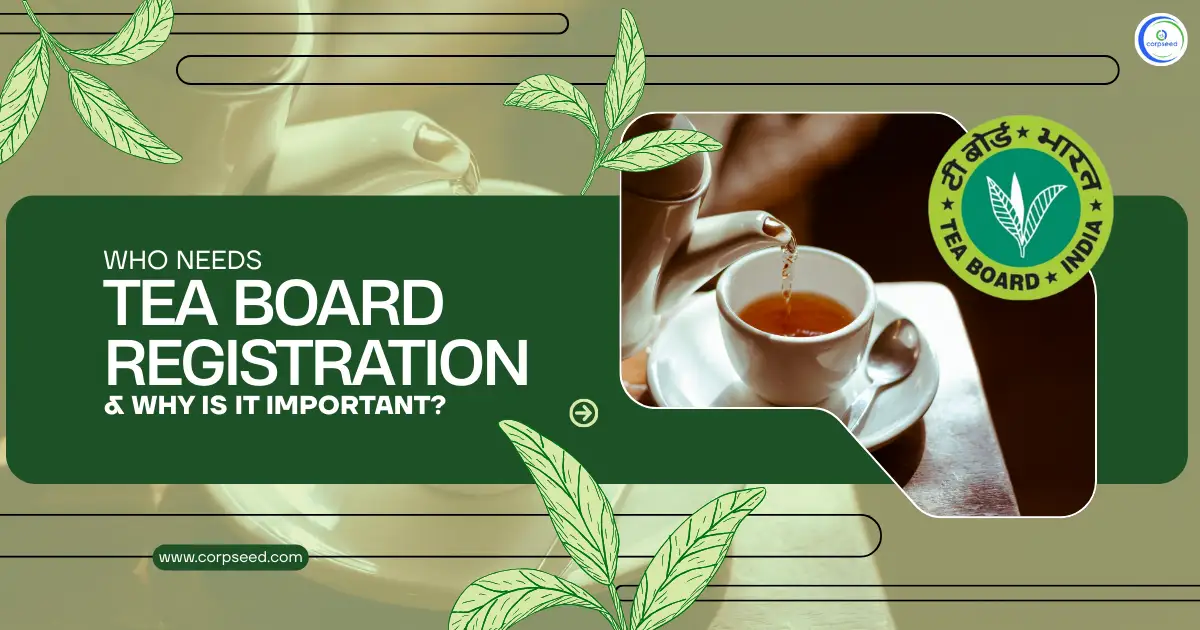In India, food quality and safety has always been significant for people’s health. In the 1970s and 80s, the government stimulated AGMARK certification through Doordarshan to make people informed of the quality standards for the agricultural products which we consume on regular basis such as mustard oil, pulse, rice, flour and milk. Today, FSSAI (Food Safety and Standards Authority of India) is playing the same role for all food products. Many people are still confused about FSSAI and AGmark. Understanding the difference between these two certifications helps consumers make a knowledgeable choice and ensure that the food they eat is safe and of high quality.
Table of Contents
What is FSSAI?
FSSAI stands for Food Safety and Standards Authority of India. It is an independent statutory body established under the Food Safety and Standards Act, 2006, working under the Ministry of Health and Family Welfare, Government of India. FSSAI is accountable for regulating, observing and monitoring the safety and quality of food products across the country. It plays a crucial role in setting principles to ensure that food is safe for human consumption.
Significance of FSSAI:
- Consumer Safety: FSSAI ensures that food sold in the market is free from any harmful chemicals, adulterants and unhealthy practices.
- Mandatory Licensing: All food businesses, whether small or big, must secure an FSSAI license or registration to function legally in India.
- Public Health Protection: By implementing food safety laws, it helps prevent foodborne illnesses and health risks.
- Consumer Awareness: FSSAI actively encourages awareness related to food safety through campaigns, educational programs, and labeling regulations to empower consumers.
What is AGMARK?
AGMARK stands for Agricultural Mark. It is a certification mark issued by the Directorate of Marketing and Inspection (DMI) under the Ministry of Agriculture and Farmers Welfare, Government of India. AGMARK certifies the quality and standard of agricultural products based on the parameters defined under the Agricultural Products (Grading and Marking) Act, 1937, which was amended in 1986. It guarantees consumers that the product fulfills the defined quality benchmarks.
Significance of AGMARK:
- Quality Assurance: AGMARK assures that the agricultural product has been tested and meets specific quality standards related to purity, freshness, and grading.
- Pesticide Control: Ensures that harmful pesticide residues or contaminants in products are within the allowable limits set by authorities.
- Standardized Grading System: Helps classify products into numerous grades, making pricing more transparent and fair for both consumers and producers.
- Support to Agriculture Sector: AGMARK boosts good storage, handling, and marketing practices. It also supports farmers in getting fair value for their quality produce.
--------------Blog Contact Form-------------
Difference between FSSAI and AGMARK
FSSAI and AGMARK both have certifications of food-related standards, but they assist different purposes. Whereas FSSAI is concerned with food safety and regulation in general, AGMARK specifically focuses on the quality rating of agricultural products.
- Scope and Coverage: FSSAI controls food products which contain processed goods, packaged goods, dairy, beverages, and restaurant food. It ensures food safety and quality from manufacturing to sale. AGMARK is limited to agricultural products like cereals, pulses, fruits, vegetables, and edible oils.
- Legal Framework: FSSAI was established under the Food Safety and Standards Act, 2006, which combined earlier food safety laws into one. AGMARK certification is governed by the Agricultural Produce (Grading and Marking) Act, 1937, which was amended in 1986.
- Certification and Licensing: FSSAI licensing is compulsory for all food businesses including manufacturers, distributors, and retailers, ensuring compliance with safety standards. AGMARK certification focuses on the quality grading of agricultural products and, while not always necessary, it increases the credibility to items like grains and oils.
- Purpose and Focus: The objective of FSSAI is to safeguard consumers by ensuring that food is safe, hygienic and free from contamination. AGMARK focuses on grading and standardizing agricultural produce to maintain quality and prevent adulteration.
- Product Examples: FSSAI certification applies to an extensive range of foods such as packaged snacks, bakery items, dairy products, beverages, and food served in hotels and restaurants. AGMARK certification explicitly applies to agricultural commodities such as wheat, rice, pulses, edible oils (such as mustard oil), spices, and fresh fruits and vegetables.
- Quality Assurance: FSSAI compiles scientific standards for food safety, including limits on contaminants, additives, and hygiene practices. AGMARK confirms that agricultural products fulfill set quality standards, including size, purity, moisture content, and pesticide residues.
- Consumer Impact: Both certifications help consumers trust the food they buy. FSSAI helps ensure that all food items in the marketplace are safe to eat, while AGMARK assures buyers of the quality and authenticity of agricultural products.
Conclusion
FSSAI and AGMark are very important, but their role in ensuring food quality and safety is different. While FSSAI supervises the safety, hygiene, and regulation of all food products across the supply chain, AGMARK focuses on certifying the quality and grading of agricultural products. Both certifications safeguard consumer interests by ensuring safe, reliable and quality food. Understanding the dissimilarity between the two helps consumers make more informed choices and increases trust in the food market. Together, they add to better public health, support farmers, and ensure that food principles keep pace with modern requirements.
Private Limited Company Registration
Private Limited Company registration is the legal process of incorporating a company as a private limited entity under the Companies Act, 2013 in India. A Private Limited Company is a type of company that is privately held and has limited liability for its shareholders.
Indian Subsidiary Company Registration
Indian Subsidiary Company Registration permits foreign companies to inaugurate their presence in India as a separate legal entity. By establishing foreign subsidiary, the Indian market can enter new markets, access new consumers, and diversify its revenue streams.
One Person Company Registration
A One Person Company (OPC) is a business entity that permits one person to own and operate a company. It maintains the simplicity of a sole proprietorship while offering limited liability protection, making it an ideal option for individual entrepreneurs.
This portion of the site is for informational purposes only. The content is not legal advice. The statements and opinions are the expression of author, not corpseed, and have not been evaluated by corpseed for accuracy, completeness, or changes in the law.
BOOK A FREE CONSULTATION
Get help from an experienced legal adviser. Schedule your consultation at a time that works for you and it's absolutely FREE.









